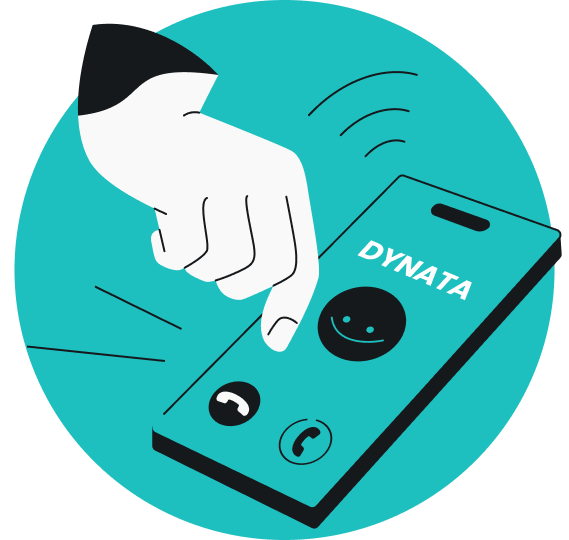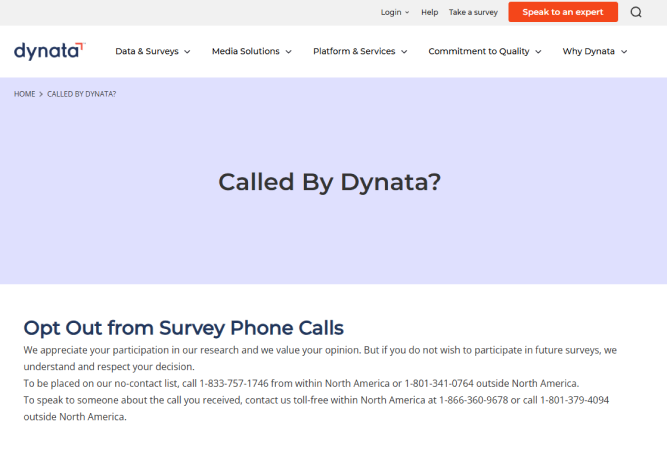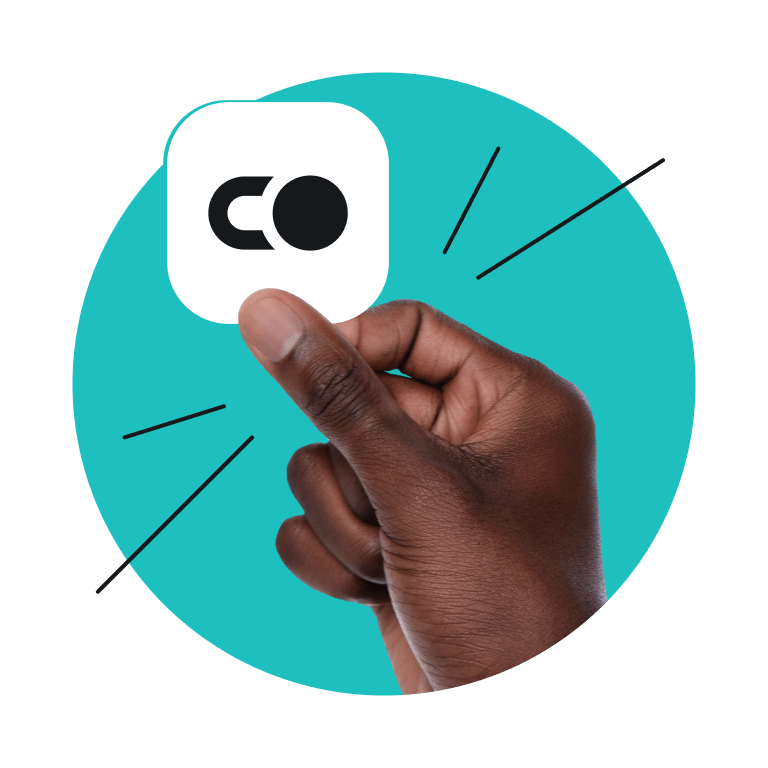If you’re getting frequent calls from a company called Dynata and wondering who the heck they are, you’re not alone. Dynata phone calls can be unexpected and annoying, especially when you don’t know who they are or why they keep contacting you.
This guide explains what Dynata is, why they might be reaching out, and how to stop their calls for good.
Key takeaways
- Dynata is a real market research company. They aren’t a scam, but their calls are known for being disruptive.
- Blocking Dynata’s numbers doesn’t work, as the company regularly rotates them.
- You can manually opt out of Dynata calls, but this takes time and effort.
- You can reduce your chances of being contacted by Dynata through proactive privacy tools and habits.
- Incogni, part of Surfshark One+, can automatically remove your data from Dynata and 420+ data brokers.
What is Dynata, and why are they calling you?
Let’s first explore what Dynata is and the top reasons you may be getting their unwanted calls.
What is Dynata?
Dynata is a legitimate market research company based in the US state of Connecticut. Founded as SSI (Survey Sampling International) in the 1970s, the company is primarily owned by two private equity firms, Court Square Capital Partners and HGGC.
They were rebranded to Dynata in 2019 and have since emerged from bankruptcy after filing in 2024.
What does Dynata do? They conduct surveys on behalf of businesses, political groups, and other organizations, often over the phone.
Why is Dynata calling you?
If Dynata calls you, that means you were selected to take a survey for one of their clients. They’ll likely want to ask survey questions on topics such as your:
- Demographic features;
- Consumer habits;
- Social or political views;
- Customer satisfaction;
- Media usage.
There’s a good chance Dynata got your phone number from data brokers, people search sites, online signups, or public records. While collecting PII (Personally Identifiable Information) this way isn’t illegal, Dynata calls are often seen as unwanted — and frustrating.
Is Dynata a scam?
No, Dynata isn’t a scam — it’s a legitimate company that conducts market research through phone calls.
However, many people complain about Dynata because their calls are seen as potential spam and an invasion of privacy. Just like unwanted telemarketer calls, calls from Dynata are typically unwelcome or come at inconvenient times.
Worse still, it’s all too easy for scammers to impersonate Dynata. You can usually tell you’re speaking with a fraudster by watching out for questions that ask for:
- Money or credit card info;
- Your Social Security number;
- Remote access to your electronic devices.
Scammers will try to trick you by asking for this personal information — Dynata won’t.
How to stop calls from Dynata?
You’ve got three basic options to stop Dynata calls from reaching your phone.
Option 1: Ask to be added to Dynata’s no-contact list
Your first choice is straightforward — call Dynata and request to be placed on their no-contact list.
To opt out of Dynata surveys, you can call them at the following numbers:
- Within North America: 1-833-757-1746
- Outside North America: 1-801-341-0764
If you prefer other forms of contact, you can also try sending an email to privacy@dynata.com or mailing your request to:
Dynata, LLC
4 Research Drive
Shelton, CT 06484
USA
While this process usually works, you still need to contact Dynata manually. You may also need to follow up with them to confirm that you’ve actually been added to their list.
Option 2: Block Dynata’s number
Individuals who want to take their privacy into their own hands might consider blocking the Dynata number that contacted them. The problem is, this usually doesn’t work.
Blocking a Dynata number doesn’t help because the company uses many different phone numbers. You’re essentially playing whack-a-mole — block one number, and you’ll keep getting calls from others.
Option 3: Use Incogni to opt out automatically
If you want to effectively stop receiving Dynata calls — while putting in less effort — a data removal service like Incogni might be your best bet.
Incogni will contact Dynata and opt out of their surveys on your behalf. Going a few steps further, Incogni can help remove your personal information from 420+ other data brokers with no need to manually call, email, or follow up with any of them.
Incogni comes included in the Surfshark One+ plan, an excellent cybersecurity bundle for people who want to reduce spam calls, save time, and stay private online — and on the phone.
How to prevent companies like Dynata from getting your number
Even if you’ve never been contacted by Dynata (lucky you), there are proactive steps you can take to limit future exposure of your personal data and see greater privacy online.
Limit what you share online
When it comes to posting your PII on the internet, less is generally better. Monitor what kinds of information you share — and where you share it — to reduce the chances of companies, scammers, and other snoops finding your private details.
Here are some helpful tips to limit your data exposure:
- Make your social media accounts private;
- Don’t list your phone number in your bios or public profiles;
- Avoid common gimmicks like quizzes, sweepstakes, or giveaways that collect personal data;
- Be careful when connecting third-party apps to your social media profiles or Google accounts;
- Only provide essential data when signing up for online services.
Use privacy tools to stay hidden
If you’re looking to maintain long-term privacy online, look into cybersecurity tools like the Surfshark One+ bundle. Surfshark One+ is an effective option for internet users who want all-around security for their browsing, devices, and identity.
Surfshark One+ includes the following tools that can help prevent your data from being sold or exposed:
- VPN (Virtual Private Network): a VPN encrypts your traffic and hides your IP (Internet Protocol) address, making it hard for third parties like research companies to track you;
- Online alias: Surfshark’s Alternative ID lets you generate an alternate name, email address, and persona to avoid sharing your primary details on online signup forms;
- Alternative number: this feature lets you protect your main phone number by using one provided by Surfshark for listings, registrations, and more;
- Data leak monitoring: Surfshark Alert monitors the web for leaks involving your email addresses, passwords, and ID numbers, notifying you whenever corrective actions are needed;
- Private search engine: Surfshark Search offers ad- and tracker-free searches without ever storing or sharing your search history;
- Data removal service: Incogni automatically requests the deletion of your personal data from 420+ data brokers and research firms like Dynata.
What if it isn’t actually Dynata calling me?
Dynata research calls may be annoying, but they’re generally safe. Dealing with a scammer claiming to be from Dynata, however, is much more dangerous. Thankfully, you can spot these scam calls if you know what signs to look for.
How to spot scam calls pretending to be Dynata
The easiest way to spot imposter scammers who say they’re calling you from Dynata is to see if they ask for private details that could be used to commit identity theft.
Dynata often asks about your demographic traits, consumer habits, or media usage. Legitimate Dynata calls will never ask for more sensitive info like passwords, bank account numbers, or Social Security numbers.
If you’re asked to share any of these, that’s an instant red flag that you’re talking to a scammer.
What to do if you’re not sure Dynata is calling you
If you think a scammer has called you pretending to be from Dynata, take the following steps:
- Hang up: immediately end the call. If the same number — or another unrecognized number — calls back, don’t answer;
- Call Dynata to verify: answering survey questions over the phone might not be fun, but Dynata is a legitimate business with a reputation to uphold. If you think a scammer called you, notify Dynata’s official support line. They’ll be able to check if they did, in fact, contact you. You can reach them at these numbers:
- Within North America: 1-866-360-9678
- Outside North America: 1-801-379-4094
- Never give away info over the phone: fraudsters can’t steal your info if you don’t talk to them. If a Dynata rep calls you with survey questions, they probably won’t pressure you to answer a given question and just move on. Scammers, on the other hand, are more likely to get aggressive — and blow their cover — if you evade their intrusive questions.
Final thoughts: Steer clear of Dynata with Incogni
If you don’t want to tolerate Dynata’s calls, you’re in good hands with Incogni.
Manual opt-outs from Dynata work, but they take time and effort. In contrast, Incogni handles the whole process for you, removing your data from Dynata and 420+ other sites.
Incogni and the other tools in the Surfshark One+ bundle — like Surfshark VPN, Antivirus, Alert, Search, and Alternative ID — are smart choices to preserve your privacy and keep your data out of the wrong hands.
FAQ
Why does Dynata keep calling me?
Dynata is likely calling you to invite you to participate in a research survey. They are a marketing research company that conducts surveys on behalf of businesses, government agencies, and other organizations.
What kind of data does Dynata collect?
Dynata typically collects demographic information, consumer habits, and political or social opinions. Data may include age, location, and shopping preferences relevant to specific research topics.
Personal data is only collected with your consent and used for research purposes.
What companies use Dynata?
A wide range of organizations use Dynata’s market research services, including major brands, media companies, government agencies, and non-profits. The specific clients vary depending on the specific research project.
How do I get unwanted calls to stop?
You can reduce unwanted phone calls by adding your number to do-not-call lists and being cautious about where you share your contact information. For an extra layer of protection, consider using a data removal service like Incogni to help minimize the amount of your personal information in data broker databases.





